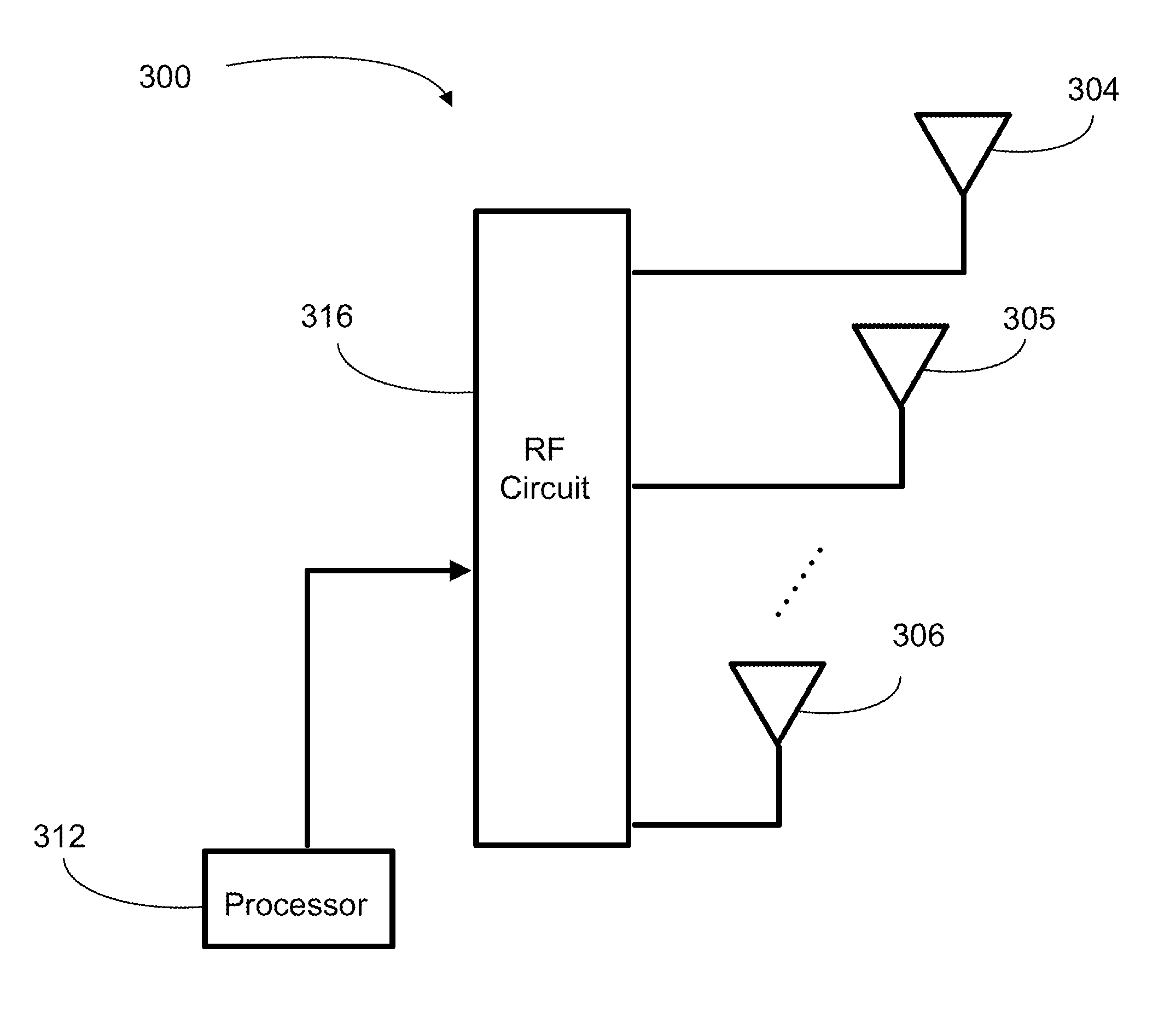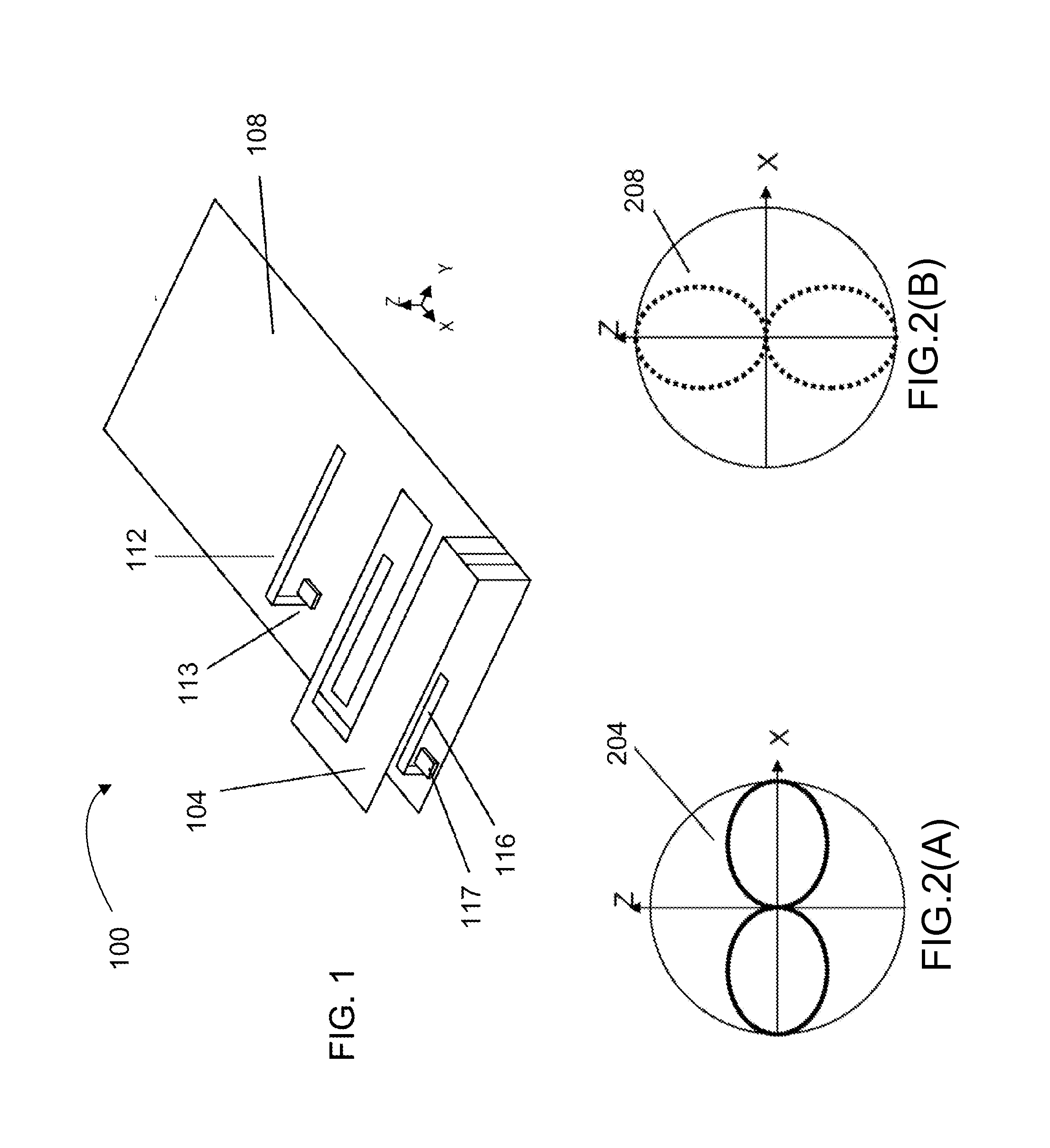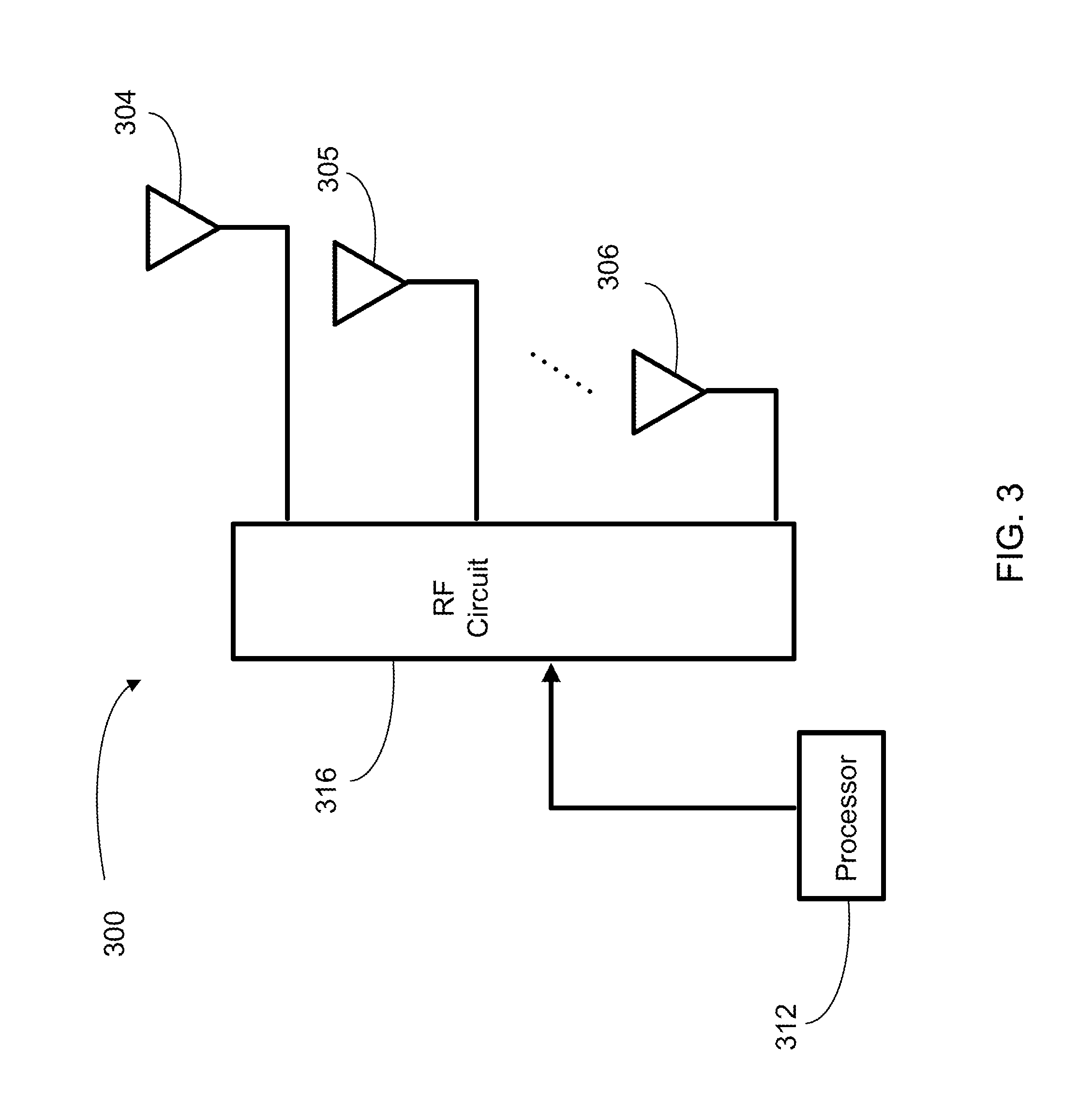Modal cognitive diversity for mobile communication MIMO systems
- Summary
- Abstract
- Description
- Claims
- Application Information
AI Technical Summary
Benefits of technology
Problems solved by technology
Method used
Image
Examples
Embodiment Construction
[0023]Active antennas which could replace the role of several passive antennas in pattern or polarization diversity schemes can be used to reduce the number of antennas. For example, a modal antenna, also referred to as a null-steering antenna, can generate multiple modes corresponding to multiple radiation patterns, equivalent to having a set of antennas with the same feed. By using the modal antenna capable of generating different radiation patterns, it is possible to exploit a priori knowledge of antenna nulls and lobes in the different modes for steering the beam to have nulls in dominant interference directions while keeping gain in desired directions. Accordingly, implementation of a modal antenna may allow for pattern and / or polarization diversity with one antenna, thereby requiring less volume and area than using multiple antennas for diversity. Examples of structures and implementations of the modal antennas are provided in U.S. Pat. No. 7,911,402, entitled “ANTENNA AND MET...
PUM
 Login to View More
Login to View More Abstract
Description
Claims
Application Information
 Login to View More
Login to View More - R&D
- Intellectual Property
- Life Sciences
- Materials
- Tech Scout
- Unparalleled Data Quality
- Higher Quality Content
- 60% Fewer Hallucinations
Browse by: Latest US Patents, China's latest patents, Technical Efficacy Thesaurus, Application Domain, Technology Topic, Popular Technical Reports.
© 2025 PatSnap. All rights reserved.Legal|Privacy policy|Modern Slavery Act Transparency Statement|Sitemap|About US| Contact US: help@patsnap.com



